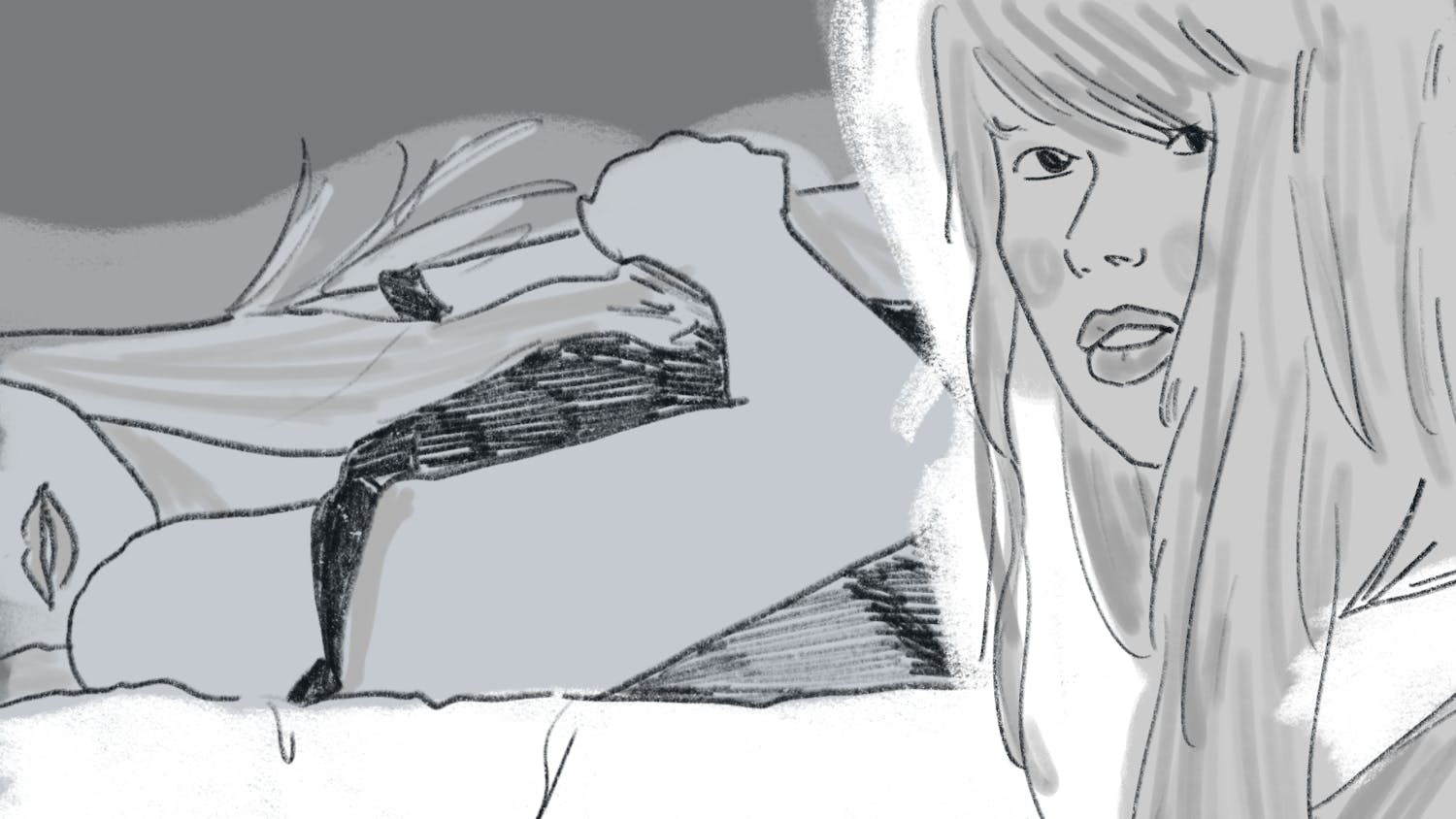Wendy Wasserstein is in the kitchen of her new summer residence, delighted with her temporary abode. "How do you like my house?" she asks with a grin, turning around to look at the picturesque surroundings of Montgomery House, donated by Harle and Kenneth Montgomery to accommodate each year's fellows.
The ebullient Pulitzer prizewinning playwright arrived this morning to begin a whirlwind of speaking engagements as the Montgomery Fellow of the upcoming Spring and Summer terms. Even tonight, Wasserstein will be busy rewriting her newest play, "Third," which will be read in Moore Theater on Thursday evening and debut nationally at New York City's Lincoln Center in the fall.
"It does feel great to be here. It feels like it's the right time," Wasserstein says, sitting on one of the sofas in the living room.
The New York-raised Wasserstein attended Mount Holyoke College in Massachusetts but fondly remembers being bused to Dartmouth during its all-male era and attending a Simon and Garfunkel concert on campus.
"Sometimes you come back to benchmarks in your life, and that's how I feel about New England," she says.
It has been a long, circular trip back to the New England collegiate world where she began her playwriting career. Wasserstein first tried her hand at playwriting in a course she took at Smith College when she was a junior.
Her professor, Len Berkman, who still teaches at Smith College today, "made [her] feel legitimate," she said. Under Berkman's tutelage, Wasserstein soon discovered that there were stories about women to be told that in fact had not been told yet. She realized that playwriting could be a possible career rather than a mere hobby to be dropped once college was over.
After graduating from Mount Holyoke in 1971, Wasserstein drew upon her experiences to write "Uncommon Women and Others," her first full-length play. A story about five female graduates from Mount Holyoke, the play garnered Wasserstein both critical attention and an Obie Award. But it was 1988's "The Heidi Chronicles," a play following an educated woman's attempt to pursue career and family while staying true to her feminist ideals, for which Wasserstein won a Tony Award and the Pulitzer Prize.
The much-anticipated "Third" is the story of a tenured female professor at a small New England college who is teaching a class on "King Lear" from the feminist perspective. Her relatively steady life quickly becomes complicated when she accuses a sophomore wrestler of plagiarism.
"It's about a woman in mid-life who has a very clear political position and academic agenda, who comes to question a rigid point of view," Wasserstein says, characterizing the work as a play about loss, mid-life and inspiration.
She does admit, however, that "Third" comes close to the award-winning "Heidi Chronicles" with regards to its plot, again focusing on an academic struggling with her values.
"It's about someone who's an idealist, someone who has dealt with feminism and its repercussions on her life," she said. "It's comic and sad, just like life!"
At the time of the play's conception, Wasserstein was going through a rather tumultuous time, as her father had recently succumbed to Alzheimer's disease. She first envisioned "Third" while she was writing at the MacDowell Colony, an artists' colony for the most talented creative minds in America. Her new play may, on the surface, be about a professor and a wrestler, but Wasserstein said she feels the story came to encompass her relationship with her father as well.
Indeed, playwriting has provided more than just literary recognition and critical acclaim to Wasserstein; it has also been an outlet for her, allowing her to work through her thoughts and vent her frustrations.
"In bad times, it's given me a place to go," she says reflectively. "I always feel calmer if I'm writing. It's a place to put experience and a focus in life, and I'm very grateful. In many ways, it's saved me."
"It makes me more compassionate with other people's points of view," Wasserstein thoughtfully offers. Laughing raucously, she adds, "I try to understand them, unless I find them politically insufferable!"
Wasserstein exhibits the same quick, wry wit that her characters demonstrate, and she radiates a warmth and optimism that she will soon be extending to the classroom when she teaches a summer class called "Finding Your Voice as a Playwright."
"I think helping writers find their own voices and the legitimacy of their own voices is one of the most important things," she says. Not only does she plan to have her class watch the College's production of "The Heidi Chronicles," but she also expects them to take on the daunting task of critiquing it as well.
Wasserstein is eager to hear what her students will have to say about the play, which has become a contemporary American classic and a long-running hit on Broadway. The famed writer exudes humility and obviously has a genuine interest in nurturing young playwrights and encouraging creativity.
"All the playwrights I know are very interesting people. That is a real gift in life, to love what you're doing and to be able to create something. But that's not necessarily valued in society; what's valued is transacting," she says frankly.
As for the future, Wasserstein says she will continue writing, perhaps composing something about her mother. As the mother of a five-year-old little girl, Wasserstein may also write about parenting and the newer issues that have crept into her life.
So for Wendy Wasserstein, does her art imitate her life? "It evolves with me and it's circular," she says, "like coming back to Dartmouth."



